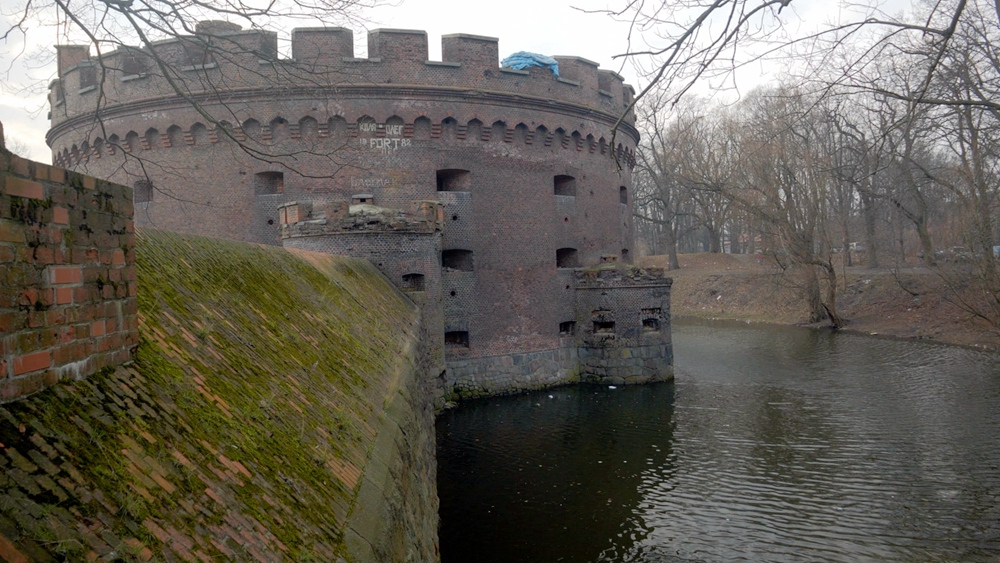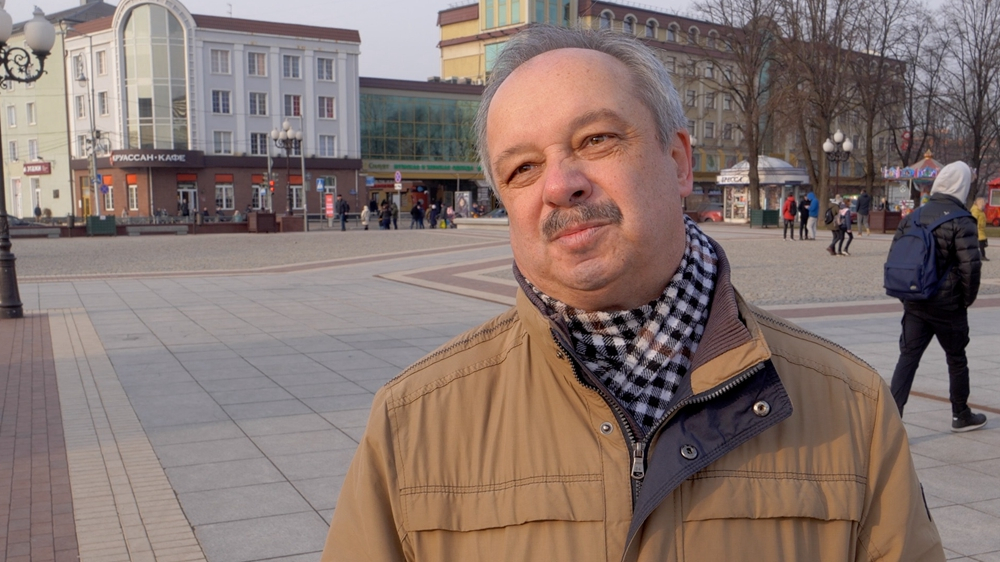
Europe
13:14, 21-Feb-2019
Is the U.S. INF treaty withdrawal mainly about China?
Aljosa Milenkovic

The United States officially decided to withdraw from the Intermediate-Range Nuclear Forces treaty, commonly referred to as the INF on Friday, February 1. This was the agreement initially signed by the Soviet leader Mikhail Gorbachev and U.S. President Ronald Reagan back in 1987. It outlawed all missiles that could strike within a certain range.
Despite the treaty only involved two sides, the U.S. and the USSR, Europe benefited the most from the deal because it dramatically reduced tensions on the continent.
Now, in light of a possible new Cold War, these tensions are back. On the European soil, those are maybe the highest at the Kaliningrad exclave. That piece of land with around one million people is a part of Russia, but yet it is surrounded by Lithuania, Poland and a Baltic Sea.

A view of Kaliningrad, February 19, 2019. /CGTN Photo
A view of Kaliningrad, February 19, 2019. /CGTN Photo
The capital city of that region is Kaliningrad, which until 1945 was under German rule under the name of Konigsberg. After Nazi Germany lost the war, the Soviet Union annexed that part of Germany, and since its collapse, it is part of the Russian Federation.
An old fortress in the center of Kaliningrad is one of the few remaining symbols of the old - German past. Now, no cannons are sticking out from the fortress towers, nor soldiers patrolling its walls in a show of strength.
These days, those signs can be seen elsewhere, mostly at the endless beaches of this region. Those have seen a lot of activity from the Russian military in recent years.

Yuriy Zverev, a professor from Baltic Federal University. /CGTN Photo
Yuriy Zverev, a professor from Baltic Federal University. /CGTN Photo
Both the Kremlin and local analysts say the drills are conducted in response to the actions of the surrounding NATO armies. According to them, the deployment of the disputed Russian Iskander missile system is no different.
But as Yuriy Zverev, a professor from Baltic Federal University had told us, the truth about Iskanders here is not what has been painted by the western media and politicians.
"And here is an example of the famous Iskander tactical missile system, which the West is scaring people about. Russia announced these missiles will be positioned here back in 2008 as a response to the deployment of a U.S. anti-missile system in Poland. In reality, the Iskander arrived only last year, and the regiment here was the last to receive the system in the entire Russian army," said Zverev.

Kaliningrad city center /CGTN Photo
Kaliningrad city center /CGTN Photo
On the other hand, he pointed out the United States' wish to counter the rising economic and military power of China. According to Zverev, the INF deal obligated only Russia and the U.S. not to develop missile systems within the range of 500 to 5,500 kilometers. Other countries, like India and China, which were not part of the deal, could work on those weapons without any limits. So, for the U.S., it was very important to have free hands to continue developing and deploying those missiles in order to counter the potential threat in the Pacific region.
Zverev added, Russia and Iskander missile systems were only used as an excuse and pretext for the U.S. to get out of the INF treaty, but with China as the primary target of that withdrawal.
Pulse of the ordinary people in Kaliningrad

Inna Melnikova. /CGTN Photo
Inna Melnikova. /CGTN Photo
While the accusations continue to be traded and with a proven military build-up on both sides, ordinary people are trying to get on with their lives. We have met Inna Melnikova in front of her office in downtown Kaliningrad. She moved here from Siberia four years ago and ever since she has traveled regularly to neighboring Poland. Inna says the increased tensions between the two nations are not seen among ordinary people.
"I haven't felt it, honestly, but just the opposite. Thank God we haven't had any unpleasant situations in Poland. If you're visiting touristic cities and you need directions, people are always nice, willing and patient in giving explanations to us," said Inna.
Her perception is supported by Elena Volova, a local member of Russia's Civic Chamber.

Elena Volova, a member of Civic Chamber of the Russian Federation. /CGTN Photo
Elena Volova, a member of Civic Chamber of the Russian Federation. /CGTN Photo
"You know, from my perspective, the political situation has changed, but that hasn't affected the people who live on both sides of the border. As people from Kaliningrad traveled to Poland before, they're still traveling these days too," said Volova.
So, it seems that neither Russians nor Poles who live in the region are interested in pouring gasoline on an already burning fire. At the same time, their opinions and feelings aren't exactly being taken into account by policymakers.

SITEMAP
Copyright © 2018 CGTN. Beijing ICP prepared NO.16065310-3
Copyright © 2018 CGTN. Beijing ICP prepared NO.16065310-3